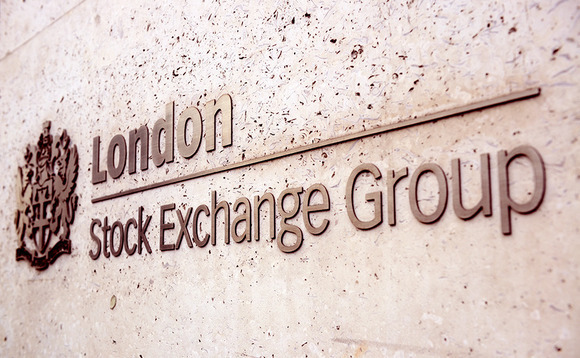
Volatility impacts listed private equity

As volatility and uncertainty take their toll on the public markets, Alice Murray assesses the outlook for listed private equity players
Following a turbulent and uncertain few months, with oil prices remaining low and geopolitical pressures deepening, it is of little surprise that value is being shed from stock exchanges around the world. But for listed private equity the picture is less clear-cut.
It is at times like these that private equity relishes its defensive strategy – minimal exposure to volatility in the stock markets means GPs are able to protect their portfolio companies, batten down the hatches and work against the cycle.
However, not all private equity firms are spared this fortune; prominent listed GPs have seen their share prices tumble in recent months. On 11 February, the largest private equity players – KKR, Carlyle, Blackstone and Apollo – all saw their share prices fall to their lowest levels in years, in most cases shrinking to half the value seen since the highs of May last year, or in Carlyle's case, a third of its price, from $31.49 per share in May 2015 to just $11.70.
Newly appointed LPEQ CEO Douwe Cosijn attributes this substantial drop in value to wider macro concerns. He says that, as the broader financial sector has been badly knocked since the start of the year, larger more liquid players, which fall into that wider category, are seeing their share prices drop.
Aside from shareholder confidence in long-term performance, in falling markets, if you're less liquid, your share price may outperform, as lower liquidity will generally protect you from near-term market volatility" – Douwe Cosijn, LPEQ
Outperforming the markets
This level of liquidity and frequent trading is important to keep in mind when looking at listed private equity players in the UK. The average performance of listed funds in Europe has fared better than the FTSE 250, according to LPEQ's price performance comparison chart. But Cosijn says this could be because they are less liquid: "Aside from shareholder confidence in long-term performance, in falling markets, if you're less liquid, your share price may outperform, as lower liquidity will generally protect you from near-term market volatility."
However, looking at the picture in more detail for UK direct investors, Dunedin Enterprise Investment Trust's share price has fallen gradually from 345 pence in November 2015 to 293 pence on 17 February, while 3i's fate has been broadly similar: having reached a high of 502 pence per share in November 2015, the price fell to 424 pence per share on 17 February.
And for others, the fall has been sharper, including for Electra Private Equity, which saw a peak on 31 December 2015 to reach £37.57 per share and has since experienced a bumpy path, down to £33.21 per share by mid-February. Similarly, HgCapital Trust rose to £12.79 per share on 1 January and has since slipped to 995 pence by 17 February.
Macro, not micro
By grouping the movement of these share prices together, one could argue the recent slide is attributable to macro pressures. Cosijn agrees: "It may not be driven by the fundamentals of a specific private equity manager and more about their view on the market, broader concerns around financials or the macroeconomic outlook generally." Furthermore, Cosijn says analysts covering this market are reporting positively on the underlying earnings growth of listed private equity players.
Speaking unofficially, analysts covering listed private equity in the UK note that discounts to NAV have widened in recent weeks, from around 15% to 20%. And sentiment appears ambiguous at best, with one analyst saying the outlook for these funds is difficult to call. However, the analyst mentions that the falling markets offer an opportunity for private equity to put money to work.
But although value is being shed on the public market, the picture is entirely different on the private market. With private equity funds sitting on vast sums of dry powder, and with a seemingly endless supply of newly raised funds adding to the mix (for example, Synova's fresh £250m vehicle and Stirling Square's latest €600m fund, with a swathe of UK-focused funds understood to announce fund closings soon), asset valuations are continuing to climb as competition becomes ever-more heated.
And it is this divergence in understanding that is at the heart of the matter. Those on the outside looking in see too much of the wider picture: they forget the level of protection private equity portfolios are afforded from macro headwinds, as well as the intricacies of the private market.
Latest News
Stonehage Fleming raises USD 130m for largest fund to date, eyes 2024 programme
Sponsor acquired the public software group in July 2017 via the same-year vintage Partners Group Global Value 2017
Stonehage Fleming raises USD 130m for largest fund to date, eyes 2024 programme
Czech Republic-headquartered family office is targeting DACH and CEE region deals
Stonehage Fleming raises USD 130m for largest fund to date, eyes 2024 programme
Ex-Rocket Internet leader Bettina Curtze joins Swiss VC firm as partner and CFO
Stonehage Fleming raises USD 130m for largest fund to date, eyes 2024 programme
Estonia-registered VC could bolster LP base with fresh capital from funds-of-funds or pension funds









